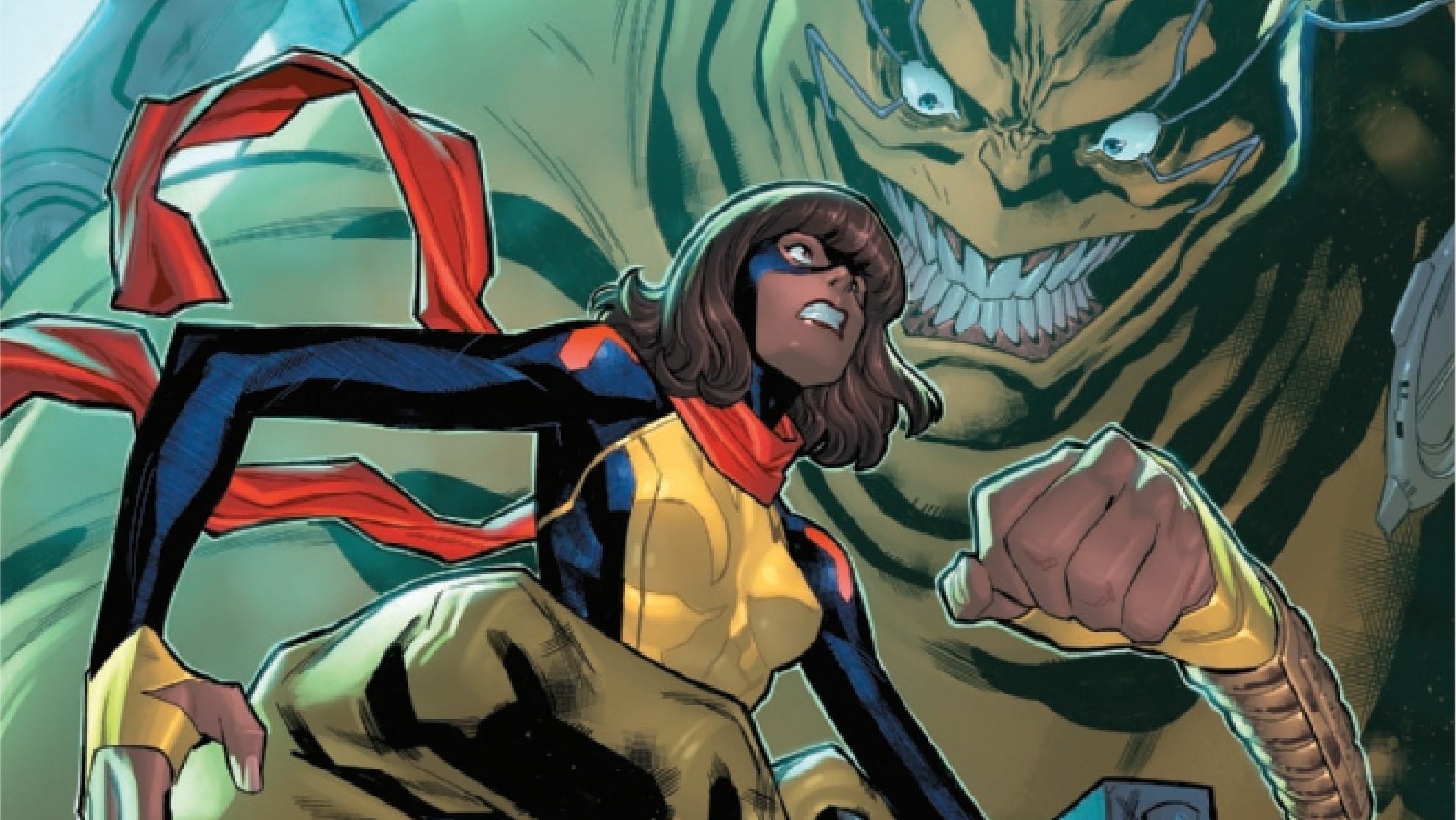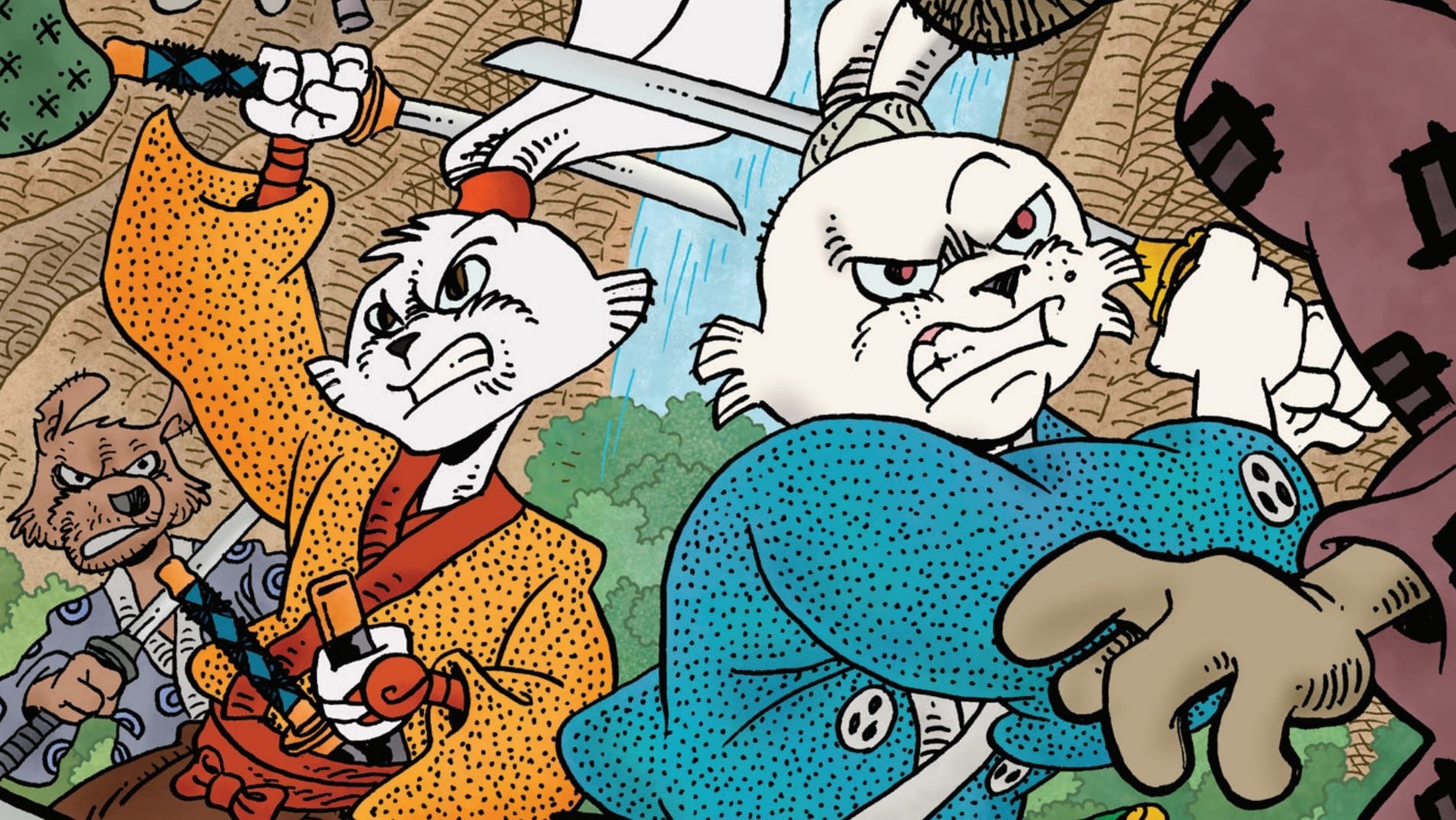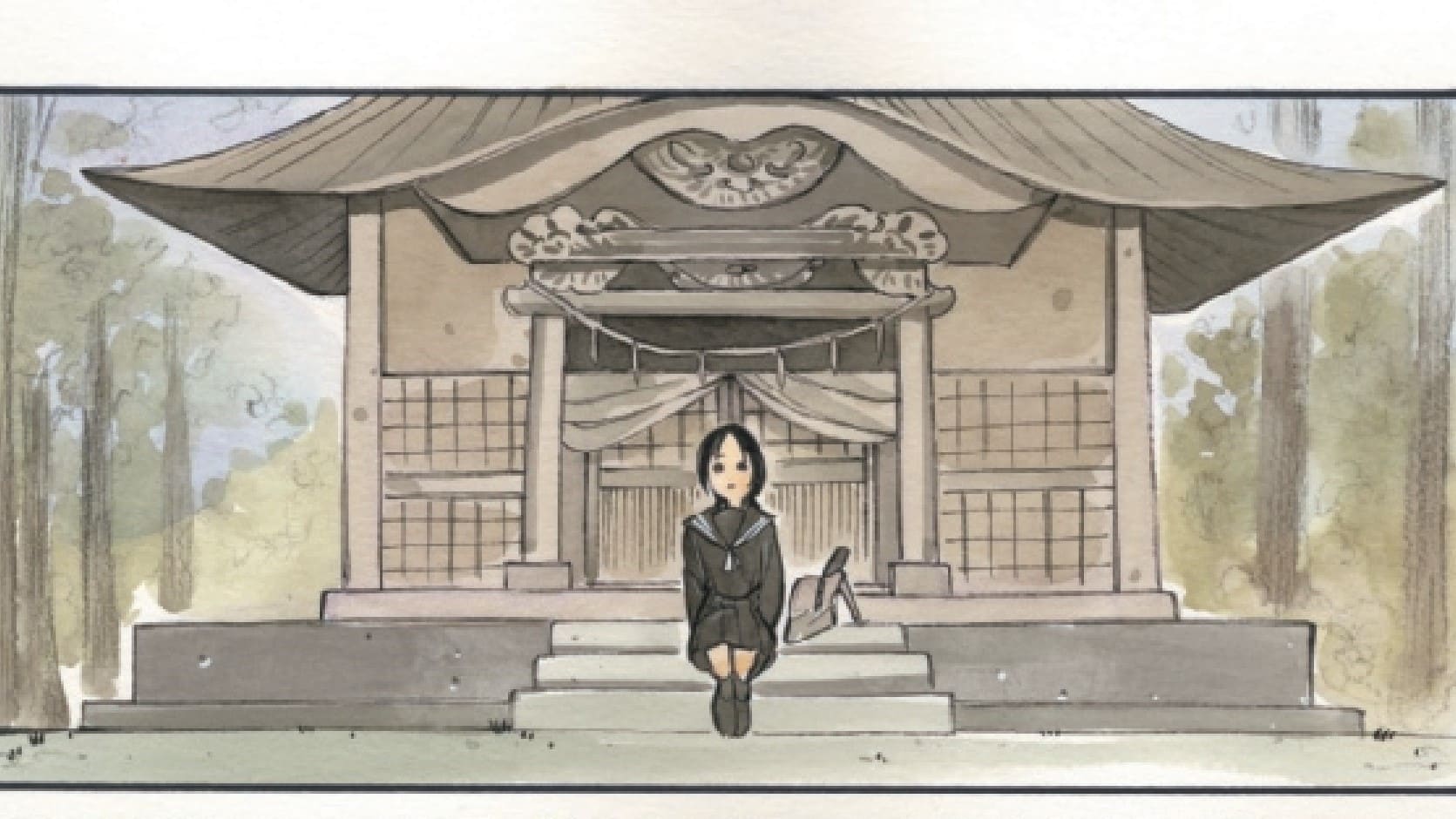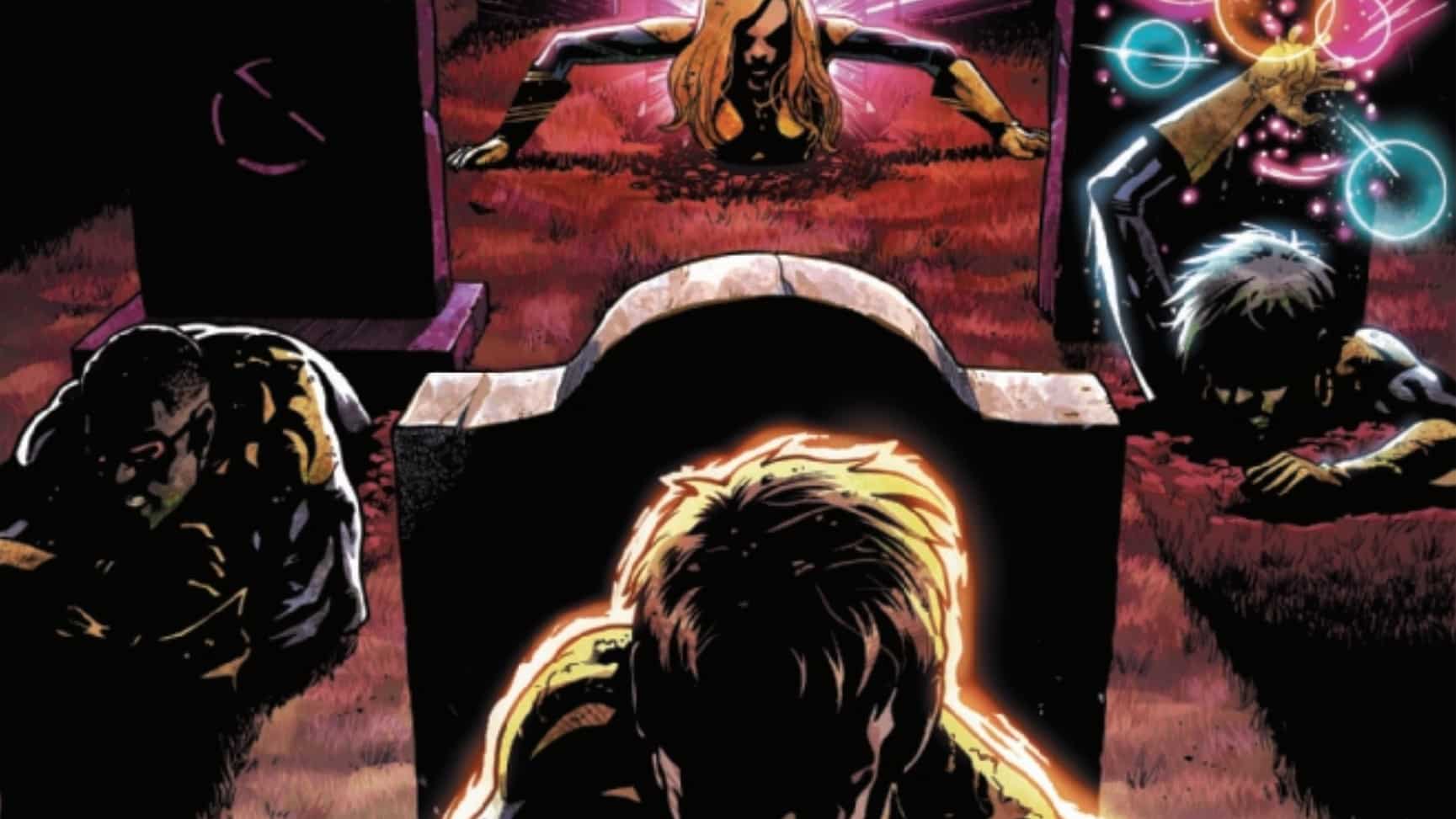Kamala’s past and present collide, as does her home and heritage. A trip to the past helps her understand who she truly is, just in time for her to return — first to the present, then to her home — to ensure the safety of everyone she holds dear.
Ms. Marvel has adapted a lot of my favorite moments from the comics. One of my favorites was a quiet moment between Kamala and her father, in which he tells her the origin of her name: it means perfection, given to her after difficulties leading up to her birth still resulted in a perfect child. It’s a quiet moment, one where Kamala’s father lets her know that she is loved, and just perfect the way she is — and what’s more, that she doesn’t need to model herself after Carol Danvers, which is what Kamala had been doing in the comics up to that point.

I have a similar story behind my own Persian-originating name, so this scene meant a lot to me behind its own inherent beauty. I was delighted to see it included in the show, in a quiet, intimate moment shared between Kamala and her father, beautifully performed. The scene itself was perfect, just as it was.
But then it kept going.
No translation is perfect, after all, especially when similar languages have a lot of overlap but subtle differences in meaning. As Yusuf explained, you could kind of take “Kamala” to mean “Marvel”, and Kamala beams as she realizes she’s got the same name as her hero, Carol Danvers. In the comics, this scene is the one where Kamala finally chooses to be herself. The show turns it into the reason Kamala models herself after someone else, because up until now she’s not actually taken on the moniker of Ms. Marvel. It’s the complete opposite of what the original scene was meant to be.
On top of that, the secen ends with her running away into the night. We’re left with her father lit up by her new powers, wonder in his eyes, saying, “Magic. Absolute magic” — reminding us all of Kamala’s new powers, and the fact that she’s (kind of) part djinn.
With the show now done, I realize that this is what bothers me both about the series. It gets some things so joyfully, wonderfully right. The problem is that it has no idea where to stop, and everything else that’s crammed in ruins what’s come before.
An Detour to the Past

I wish I had been able to enjoy the flashback episode more. There was a lot of buildup to it — the visions of the train, the legend of Sana following the stars, the talk of the partition, and, of course, the flashback scene that shows Kamala’s great-grandmother Aisha finding the bangle that unlocks Kamala’s own powers. It’s hyped up as an essential part of Kamala’s story. Despite how beautifully it was shot and scored, though, this entire flashback fell flat.
Part of it is the “Disney accent” that I talked about in episode four — something about it always feels a little bit off. This is not a story that’s set in India — this is India being presented as a story. There’s a limit to how many things can be put in to explain cultural contexts to white audiences before it feels like Disney’s rubbing in just how much the show is for white audiences.
Part of it is that there’s nothing much to the tale itself. Despite having the bulk of the episode focused on her, we learn very little about who Aisha was beyond the plot points. She loved her husband and daughter, she was afraid of Najma and the Clandestines. Given the same circumstances, that could describe anyone.
And part of the problem is that most of this has very, very little to do with Kamala herself. Kamala doesn’t get to see the parts of the story that we did. Aisha does not pass the story down onto Sana, nor does she fill her husband in on much of the truth either. There’s nothing in her story that parallels what Kamala’s been going through this season. All it really does is show us that Najma’s got a very itchy trigger finger when it comes to vengeance, and based on how quickly she went from zero to supervillain in episode three, we knew that already.
Everything before Kamala herself shows up feels like filler. Once Kamala does show up, though, Iman Vellani treats us to an incredibly powerful scene of her having to see her own great-grandmother die, and securing herself a very unique place in her family legacy. You can feel the tension of the scene, the sudden shock and pain of loss, the chaos and the sense of destiny tying into Kamala’s actions.
I just wish they’d done more with it. We, as viewers, never given a reason why it matters that Kamala’s the one who saved her grandmother in the past, or what the point of the impersonal glimpse into Aisha’s past was. This is a series that has already tried to fit the highlights of two entire volumes of the Ms. Marvel comic (almost sixty issues) into a six-episode series — we get very little from this detour.
Having the episode end with what I thought was the series’ big bad taking herself out after some quick guilt-tripping from Kamala was especially disappointing. Najma is someone who might have been a nuanced villain if she’d been given more space for her character to develop. As it stands, though, Najma oscillates wildly between different emotional states as necessary for the plot, to the point where none of her motivations matter at all.
Homecoming

The moment I saw Kamran’s powers activate, I was mad about the changes to Ms. Marvel’s powers all over again. I know, I’m oscillating a lot on that front, but it wasn’t until that moment that I saw that while Kamala’s powers are changed almost beyond recognition, Kamran’s powers remain nearly unchanged from his comics counterpart. Visual effects budgets aside, it made me mad that Ms. Marvel’s goofy, bold, and fun powers were changed into something that lends itself more easily to shiny, action-oriented fighting powers.
Time and time again I wish this series had just been a big budget sitcom about Kamala and her community, because that’s when the show is at its best. Kamala bonding with her mother and grandmother at the end of episode five. Sharing her secret identity with her family. The fact that it’s Kamala’s mom who designs her superhero costume (as is the case for all the best superheroes).
I’m glad they brought back the animation gimmicks we had in the first episode, as Kamala explains her plans to her friends. It’s a visual signature that made this show so unique, and I wish it had been used more throughout the series. Kamala and company fighting government spooks with Home Alone hijinks through their high school was hilarious. More than that, though, it was joyful, and far outshone the later scene of Kamala’s fight against Damage Control. I may not have enjoyed the Clandestine as villains, but I do not enjoy that this season’s finale was less superhero brawl, and more a PR battle as Kamala convinces a government agency that brown people are not much of a threat after all!
Even the quieter scenes at the high school showed how great the show could have been if the series had focused more on that. This series has a great cast, all of whom have fantastic chemistry with each other, and have managed to do a lot with very little. These kinds of scenes work for what Ms. Marvel’s intended younger audiences should have been, but the show is never allowed to stray too far from the MCU standard which, at this point, is growing tired for even the most diehard Marvel fans — and has proven deeply detrimental to the show.
The Mutant-Djinn-Alien-Nega-Bands of It All

So let’s get into that ending. That Kamala might be the MCU’s first mutant. I say “might be”, because Marvel’s left just enough wiggle room with this reveal to be able to take things back by simply saying she’s got some kind of mutation — a word choice that technically holds true for every genetically altered superhero the MCU’s produced so far.
It’s funny, given that the only reason that Kamala was an Inhuman in the comics was because the MCU wasn’t allowed to use mutants at the time, leading to a huge (and largely unwelcome) push for more Inhumans in the comics. With the utter failure of the Inhumans TV show, and Disney finally being allowed to bring mutants into the MCU, we come full circle on the whole ordeal. It’s clearly something that was shoved in without much thought, though, because in a show that put so much work into tying Ms. Marvel into a grander legacy, it just wiped that all away by saying Kamala’s powers make her wholly different from her family. Like the djinn reveal, though, the mutant reveal is immediately undermined by Kamala calling it just another label. It’s the show trying to have its cake and eat it too — excite the fans desperate for MCU X-Men content, and placate the fans who think it doesn’t matter.
So at this point, Kamala’s an alien mutant djinn, a descendant of the Clandestine and eligible for the X-Men. Her powers come from a bangle that’s deeply died into her Pakistani heritage, but also come from another dimension, but also, as per the post-credits scene, connect with Captain Marvel and the Kree dynasty. The show has suggested that the bangles that Kamala has might be the Nega Bands — it was, after all, mentioned that the bangles were part of a set, and based on the fact that Kamala switched places with Captain Marvel in that post-credits scene, it looks like The Marvels might be dragging another Captain Marvel gimmick into the MCU.
Kamala Khan’s story was always one about juggling different identities. Being a girl from Jersey, being a superhero, being Pakistani and America, being a Captain Marvel legacy but still being herself — but this show’s run with this idea so hard that all of it’s just an exhausting jumbled mess. You can see this show fighting against itself to have what matters come to the fore, and while it wins more than loses, it’s the kind of fight that never should have happened in the first place.
As much as I’m looking forward to The Marvels, I’m more excited about the possibility of a Season 2 for Ms. Marvel — if the MCU can get out of its way, and let the show just do what it does best.
Marvel-ous Ms.-cellany
- The shoe thief was never outed! No matter, though, we know who did it.
- As annoyed as I am with the mutant addition, the 90s animated X-Men riff is always fun to hear. Go on, give it another listen.
- In the comics, Zoe develops feelings for Nakia — the subtext in their scene together in the finale was strong.
- Music is, as per usual, knocking it out of the park. I’ve had Aavegi on repeat for a week now.
Armaan is obsessed with the way stories are told. From video games to theater, TTRPGs to comics, he has written for, and about, them all. He will not stop, actually; believe us, we've tried.






